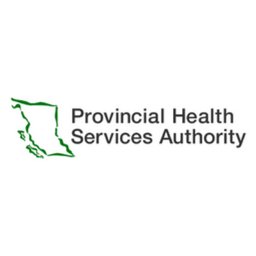Find Your Next Job
Administrative Coordinator - Bc Cancer - Vancouver
Posted on Nov. 15, 2025
- Vancouver, Canada
- 0 - 0 USD (yearly)
- Full Time

Tailor Your Resume for this Job
BC Cancer
Vancouver, BC
- Manage operational initiatives from development through to implementation. Provides support to initiative sponsors or sponsor groups, ensuring alignment with the BC Cancer Agency’s and PHSA’s strategic vision and goals.
- Develop project plans appropriate to the initiative and incorporates project management and change management approaches to ensure success in complex multi-stakeholder, multi-disciplinary settings.
- Collaborate with program staff to define and communicate service requirements and quality expectations to contracted facility management service providers. Liaises with internal and external partners to develop policies and procedures for integration of care and for clear facility processes.
- Assist the Director in project coordination, administration, project input, project planning, and reporting. Arrange meetings and/or appointments including booking meeting rooms, preparing and distributing agendas, notifying participants, and scheduling. Attends meetings as requested.
- Assist in developing, implementing and supporting business continuity plans, facility directives and on-call procedures.
- Ensure the necessary communication of information through the cancer centre and other partners while maintaining appropriate levels of security and confidentiality.
- A level of education, training, and experience equivalent to a Bachelor's degree in Planning, Business Administration, Health Administration or other related field with specific courses in Project Management and Organizational Development and five (5) years of healthcare experience with increasing responsibility including training in leadership, planning, communications, human resource management, and business
- Demonstrate comprehensive knowledge of the historic and ongoing impacts of settler colonialism and systemic racism on Indigenous Peoples within social and health contexts. This includes understanding how these factors contribute to current health disparities and barriers to care. Show a clear commitment to identifying, challenging, and eradicating Indigenous-specific racism and all forms of discrimination impacting equity-deserving groups within healthcare settings. This involves recognizing personal biases, institutional barriers, engaging in anti-racism education and training and advocating for systemic change.
- Knowledge and understanding of legislative obligations and provincial commitments within BC Cancer contexts found in the foundational documents including Truth & Reconciliation Commission’s Calls to Action (2015), In Plain Sight (2020), BC's Declaration on the Rights of Indigenous Peoples Act (2019), United Nations Declaration on the Rights of Indigenous Peoples (UNDRIP), Reclaiming Power and Place Missing and Murdered Indigenous Women & Girls Calls for Justice (2019), the Declaration Act Action Plan and Remembering Keegan: A First Nations Case Study, BC Human Rights Code, Anti-racism Data Act and how they intersect across the health care system.
- Brings an understanding of the Indigenous specific racism and the broader systemic racism that exists in the colonial health care structure and has demonstrated leadership in breaking down barriers and ensuring an environment of belonging. Embed Indigenous Cultural Safety and Humility into all aspects of work. This means creating an environment where Indigenous patients feel respected, valued, and understood. Foster trust through respectful communication, active listening, and honoring equity-deserving people's perspectives on health and wellness. Commit to ongoing education and training on Indigenous health issues, cultural safety, and DEI principles. Participate in workshops, cultural immersion experiences, and continuous professional development to stay informed and responsive to equity-deserving groups. Provide patient-centred care that respects Indigenous ways of knowing and healing, respects BIPOC experiences and world views ensuring that care plans are culturally relevant and holistic.
- Knowledge of social, economic, political and historical realities of settler colonialism on Indigenous Peoples and familiarity with addressing Indigenous-specific anti-racism, anti-racism and Indigenous Cultural Safety and foundational documents and legislative commitments (The Declaration Act, the Declaration Action Plan, TRC, IPS, Remembering Keegan, etc.).
- Demonstrated initiative.
- Independent problem-solving capabilities.
- Proven ability to meet deadlines and coordinate a number of projects at once. Proven attention to detail.
- Knowledge of Word processing, spreadsheet and planning software.
- Excellent written and verbal communication skills.
- Strong people and team skills. High level of motivation. Ability to work in a fast-paced team environment.
- Ability to work with minimal supervision.
- Commitment to beginning and continuing their personal learning journey related to Indigenous-specific racism and dismantling systems of oppression, as well as addressing racism more broadly. Shows willingness to articulate and share their learning experiences to contribute to a culture of motivation and inspiration among peers.
- Knowledge of the social, economic, and political realities of settler-colonialism and its impacts on Indigenous peoples and equity-deserving groups within social and health contexts. Understands the impact of social determinants of health-on-health outcomes. Shows a commitment to learning about and upholding legislative obligations and provincial commitments outlined in foundational documents such as the Truth & Reconciliation Commission’s Calls to Action (2015), In Plain Sight (2020), BC's Declaration on the Rights of Indigenous Peoples Act (2019), United Nations Declaration on the Rights of Indigenous Peoples (UNDRIP), Reclaiming Power and Place: Missing and Murdered Indigenous Women & Girls Calls for Justice (2019), the Declaration Act Action Plan, Remembering Keegan: A First Nations Case Study, the BC Human Rights Code, Anti-Racism Data Act, and the Distinctions Based Approach.
- Join one of BC’s largest employers with province-wide programs, services and operations – offering vast opportunities for growth, development, and recognition programs that honour the commitment and contribution of all employees.
- Access to professional development opportunities through our in-house training programs, including +2,000 courses, such as our San’yas Indigenous Cultural Safety Training course, or Core Linx for Leadership roles.
- Enjoy a comprehensive benefits package, including municipal pension plan, and psychological health & safety programs and holistic wellness resources.
- Annual statutory holidays (13) with generous vacation entitlement and accruement.
- PHSA is a remote work friendly employer, welcoming flexible work options to support our people (eligibility may vary, depending on position).
- Access to WorkPerks, a premium discount program offering a wide range of local and national discounts on electronics, entertainment, dining, travel, wellness, apparel, and more.
** Please note: Support for nomination with the BC Provincial Nominee Program is not a guarantee, entitlement or an employee benefit after receiving a full time job offer with PHSA**
Tailor Your Resume for this Job
Share with Friends!
